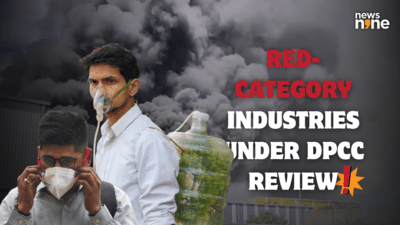
New Delhi: The Delhi Pollution Control Committee (DPCC) has opened applications from individuals and expert organisations to assess whether the Capital’s most polluting “red category” industries are complying with environmental regulations. The move is part of a broader effort to strengthen pollution monitoring and ensure industrial accountability.
Selected experts or agencies will be responsible for conducting comprehensive inspections and preparing detailed “adequacy reports.” These technical assessments will evaluate whether industrial units’ pollution control measures, including effluent treatment plants, air filtration systems, and waste management facilities, are sufficient for safe operation. The findings will inform the DPCC’s review of each facility’s compliance with environmental norms.
Field inspections & laboratory testing to curb pollutionField inspections will be accompanied by laboratory testing of samples at facilities accredited by the Ministry of Environment, Forest and Climate Change (MoEFCC), the Central Pollution Control Board (CPCB), or the National Accreditation Board for Testing and Calibration Laboratories (NABL). Officials stressed that the exercise is intended to provide independent verification of the effectiveness of pollution control systems in practice, rather than relying solely on self-reported data from industries.
Red-category industries, which have a Pollution Index score of 60 or above, are considered the most environmentally hazardous. They include sectors such as thermal power generation, cement manufacturing, and tanneries, all of which involve high-combustion processes and significant emissions.
Eligibility criteria for experts and institutionsEligibility criteria for experts and institutions are stringent. Professionals must have at least five years of experience in environmental compliance assessments, while academic institutions must offer postgraduate engineering programmes and have lead researchers with a master’s degree in environmental or civil engineering or an assistant professor-level position. Each applicant is also required to field a team of at least five qualified technical staff.
The DPCC initiative signals a proactive approach to tackling industrial pollution in the Capital, focusing attention on facilities that have the largest environmental footprint. By combining rigorous inspections with independent laboratory analysis, the committee aims to ensure that pollution control systems function as intended and that industrial emissions and waste management practices meet regulatory standards.
-
Is Baseer Ali evicted from Bigg Boss 19? Ask fans

-
Tanuja Chandra On Directing Irrfan Khan: ‘Not Easy, Wouldn’t Do Too Many Takes’

-
Karwa Chauth 2025: Chic Gold Jewellery Gifting Ideas For Karwa Chauth

-
Jan Suraaj Announces 51 Candidates For Bihar Assembly Elections, Including RK Mishra, Priti Kinnar

-
Congress Names This Leader As Candidate For Jubilee Hills Bypoll
